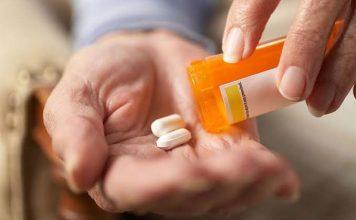Are you tired of dealing with a congested nose, postnasal drip, sinus infections, facial pain, reduced sense of smell, and other symptoms associated with nasal polyps? It is time to consider seeking treatment.
According to Cecelia Damask DO, an ear, nose, and throat specialist in Lake Mary, FL, there are various treatment options available for nasal polyps.Your healthcare provider can develop a treatment plan aimed at reducing or eliminating these benign growths in your nasal passages and sinuses, enabling you to breathe more easily.
The following are the most commonly prescribed medications for treating nasal polyps according to the WEBMD.
Oral steroids are a common treatment for nasal polyps, often prescribed by doctors in cases of severe sinus disease, recurring polyps, or when nasal sprays are ineffective. According to Damask, oral steroids are effective but carry risks such as high blood sugar, cataracts, glaucoma, osteoporosis, bone fractures, and heart issues with repeated use. Using oral steroids for even a few cycles could lead to these side effects. Due to these risks, long-term use of oral steroids is usually not recommended by doctors, as their effects typically last for a few months.
Topical steroids are typically the initial treatment recommended by doctors for nasal polyps. These medications, administered through drops, sprays, nebulizers, and inhalers directly into the nasal passages, help reduce inflammation and diminish nasal polyps.
According to Damask, topical steroids are not only effective but also have fewer side effects compared to oral steroids. Both prescription and over-the-counter versions of topical steroids can be used safely for extended periods, with symptoms recurring upon discontinuation.
Combining topical and oral steroids has been shown in research to be more effective in reducing polyps and enhancing the sense of smell compared to using topical steroids alone. An exhalation delivery system (EDS) is a newer method that may be more efficient than traditional nasal sprays in delivering medication precisely where it is needed. By connecting to your nose and mouth, the EDS allows you to blow the medication high into your nasal cavity.
Injectable steroids can be used by your doctor to directly target nasal polyps, allowing more medication to reach the affected area. The effects of injectable steroids are expected to last for at least 3 months. They are just as effective as oral steroids in reducing inflammation, alleviating symptoms, and shrinking polyps, but typically have fewer side effects. Some individuals may experience temporary vision loss as a side effect. If nasal polyps are severe, steroid injections may be recommended, although they may not be effective for eliminating several large polyps.
Antibiotics may be prescribed by your doctor if you have a bacterial sinus infection along with nasal polyps. The antibiotics will treat the infection that is causing inflammation, while other medications such as steroids will help shrink the polyps.
Antihistamines and decongestants Although antihistamines and decongestants do not directly treat nasal polyps, they may be recommended by your doctor to help manage symptoms like a runny nose, congestion, and itchy eyes. These medications can also reduce swelling in the nasal passages.
Biologics, which target proteins that cause inflammation and swelling, have been approved for the treatment of nasal polyps. They are considered a powerful tool against nasal polyps and have been found to reduce the severity of sinus infections, improve sense of smell, and decrease the size of nasal polyps. Initially, biologics will be administered in a doctor’s office to monitor for potential side effects, such as pain, redness, and swelling at the injection site. If no side effects occur, patients can self-administer the injections at home.
Immunotherapy, which involves allergy shots, may also be beneficial for individuals with nasal polyps triggered by allergies. Studies have shown that regular immunotherapy injections can lead to fewer symptoms and polyps, with minimal side effects. Managing allergies through immunotherapy can also decrease the risk of nasal polyps recurring.
Desensitization to aspirin can be important for individuals with a sensitivity to the medication, as this sensitivity is linked to a higher risk of developing nasal polyps. It is believed that aspirin sensitivity can lead to an increase in eosinophils, which are white blood cells known to promote inflammation.
Aspirin desensitization involves gradually introducing aspirin in monitored doses, with the aim of preventing the recurrence of nasal polyps and reducing reliance on steroid medications.
Although there are various medications available to manage nasal polyps, surgical intervention may be necessary if these medications are not effective enough.
However, it is important to note that surgery is not a permanent solution, as nasal polyps have a tendency to reoccur. Studies have shown that a significant percentage of individuals (79%) who undergo surgery for nasal polyps experience regrowth within 12 years, and over one-third require additional surgeries.
Despite the recurrence of nasal polyps, it is crucial to pursue treatment to control symptoms and enhance quality of life. According to Bhasin, there are numerous effective treatment options available that can significantly improve your condition.
